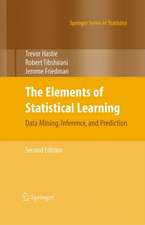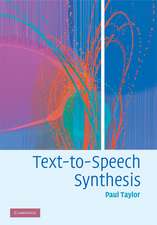Expressibility and the Problem of Efficient Text Planning: Linguistics: Bloomsbury Academic Collections
Autor Marie Meteeren Limba Engleză Hardback – 16 dec 2015
Din seria Linguistics: Bloomsbury Academic Collections
- 30%
 Preț: 833.71 lei
Preț: 833.71 lei - 30%
 Preț: 833.31 lei
Preț: 833.31 lei - 37%
 Preț: 363.73 lei
Preț: 363.73 lei - 30%
 Preț: 834.53 lei
Preț: 834.53 lei - 31%
 Preț: 831.76 lei
Preț: 831.76 lei - 22%
 Preț: 831.36 lei
Preț: 831.36 lei - 30%
 Preț: 832.58 lei
Preț: 832.58 lei - 30%
 Preț: 833.31 lei
Preț: 833.31 lei - 31%
 Preț: 830.53 lei
Preț: 830.53 lei - 30%
 Preț: 833.31 lei
Preț: 833.31 lei - 14%
 Preț: 832.91 lei
Preț: 832.91 lei - 22%
 Preț: 831.36 lei
Preț: 831.36 lei - 30%
 Preț: 833.23 lei
Preț: 833.23 lei - 30%
 Preț: 835.66 lei
Preț: 835.66 lei - 31%
 Preț: 830.94 lei
Preț: 830.94 lei - 31%
 Preț: 831.36 lei
Preț: 831.36 lei - 14%
 Preț: 832.17 lei
Preț: 832.17 lei
Preț: 831.36 lei
Preț vechi: 1197.18 lei
-31% Nou
Puncte Express: 1247
Preț estimativ în valută:
159.08€ • 166.51$ • 132.41£
159.08€ • 166.51$ • 132.41£
Carte tipărită la comandă
Livrare economică 31 martie-14 aprilie
Preluare comenzi: 021 569.72.76
Specificații
ISBN-13: 9781474246569
ISBN-10: 1474246567
Pagini: 208
Dimensiuni: 156 x 234 x 13 mm
Greutate: 0.47 kg
Editura: Bloomsbury Publishing
Colecția Bloomsbury Academic
Seria Linguistics: Bloomsbury Academic Collections
Locul publicării:London, United Kingdom
ISBN-10: 1474246567
Pagini: 208
Dimensiuni: 156 x 234 x 13 mm
Greutate: 0.47 kg
Editura: Bloomsbury Publishing
Colecția Bloomsbury Academic
Seria Linguistics: Bloomsbury Academic Collections
Locul publicării:London, United Kingdom
Caracteristici
The wide-ranging selection of titles is available as individual volumes or as themed sub-sets on Communication in Artificial Intelligence, Open Linguistics and Language Studies
Notă biografică
Marie Meteer is Adjunct Professor at Brandeis University, USA, and an independent consultant.
Cuprins
Foreword David McDonald1 The 'Generation Gap'1.1 Overview1.2 Defining the problem1.3 Text Structure: An Intermediate Level of Representation for Text Planning2 Terminology and Issues2.1 The Generation Process2.2 Issues3 Motivations From Language and Applications3.1 Analysis of Revisions3.2 Motivations from Application3.3 Summary4 The Text Structure4.1 Linguistic Resources4.2 Determining the Vocabulary of Text Structure4.3 The Text Structure Representation5 The Architecture of Spokesman5.1 Overview of Spokesman5.2 Building the Text Structure5.3 Building the Linguistic Specifications5.4 Control of the Text Planner6 Text Structure in Action6.1 Incremental Text Generation from the 'Main Street' Simulation6.2 Text Structure and Portability7 Alternative Architectures7.1 Traditional Two-Component Systems7.2 Non-Traditional Architectures7.3 Summary8 Conclusion8.1 Methodology8.2 Summary of the Contributors8.3 What Does This Work Have to Say to AI in General?8.4 Future ExcitementsBibliographyIndex












